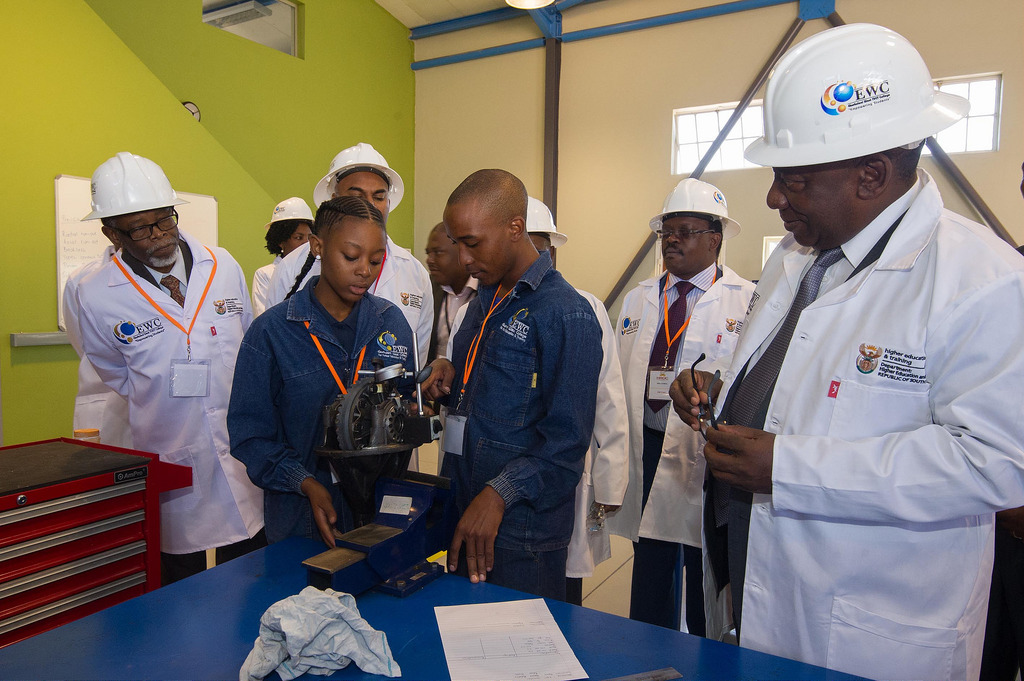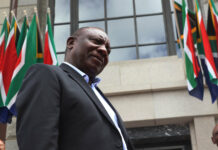It is still unclear when exactly – or indeed – if schools will reopen. The department of education is proceeding with plans to re-open schools but has also said that salvaging the academic year should not be at the expense of human life. South Africa is still in the early stages of the Covid-19 pandemic and is only expected to see the number of infections peaking as late as August. So that leaves the government with a very important decision to make. Back to school or stay at home?
During an April 30 joint briefing with the department of higher education and training, science and technology, the department of basic education said the safety of learners and educators remains the main priority.
Minister Angie Motshekga did however announce that the national COVID-19 council command has approved an adjustment of the school calendar.
The new calendar will see office-based staff returning on May 4. On May 11 the school management team will return and May 18 will see the return of teachers. According to this plan grade seven and twelve learners will return on June 1. But there’s a crucial detail that all this hinges upon – whether schools are able to be adequately prepared to adhere to hygiene standards. There’s also the not so small matter about how well or not the virus is contained in the country.
There is one thing that Motshekga has been clear about – the school year will not be lost. She said: “We are going to do whatever we can to make sure they finish the year – not just matrics, all grades.”
What are the plans?
On April 29, the department of basic education director-general Mathanzima Mweli briefed parliament’s portfolio committee on basic education. During the portfolio briefing, Mweli said the plans are tentative for the grade seven and twelve learners to return to school as early as May 6. They plan to have a phased opening of schools for the other grades.
The department said with the learning that has been lost so far, they plan to make up for it by cutting down future school holidays. In order to prevent infections, the department has also proposed certain hygiene and physical distancing interventions at schools.
Deputy basic education minister Makgabo Mhaule said the dates were not final: “We are not presenting a cast in stone plan here today…We must not compromise lives. Lives are more important than an academic year.”
The council made up of cabinet ministers has to sign off on the plans made by the minister.
What will school reopening in May mean?
Speaking to The Daily Vox, Nuraan Davids, professor of philosophy of education at Stellenbosch University said there are many issues with the plan outlined to parliament. She pointed to the proposal to only provide masks to students from quintile one to three – Schools in South Africa are divided into different quintiles depending on their resource levels and economic class of students attending the school. Davids says the department is relying on the idea that students in those quintiles are most impoverished and will need masks. However, that’s not the case as there are learners in quintiles four and five who also might not be able to afford the masks.
The minister however appeared to heed to criticism on this plan.
During the April 30 press briefing, Motshekga said face masks would be given to students in all quintile schools.
But there is a greater problem that the problem may not have such a ready answer for.
It is not unusual for public schools to have classrooms accommodating 40-50 learners. This makes social distancing very difficult, if not impossible. The department has proposed splitting classrooms and bringing in more teachers.
According to Davids there aren’t the resources to carry this out and it’s more likely many teachers will lose their jobs. A number of teachers at government schools are hired by the student governing board. With many parents being unable to pay school fees during this time, these teachers might be unable to receive their salaries. Motshekga has urged parents to continue paying school fees or alternatively to make a plan with the school.
Within the classroom, there could be a certain level of control around preventing contact between students. However, this will likely be extremely difficult to carry out on the school playground and before and after school starts while learners are travelling to school.
What are the risks?
Davids says the president and health minister have taken the approach of practising caution for the rest of society. With the conversation on opening the schools, she says this will put the most vulnerable members of society, children at risk. Dr Pauline Hanekom, curriculum studies at Stellenbosch University said the department’s plans are quite detailed, but the timeframe for implementation is where it may be found wanting.
Both the teachers’ unions, the South African Democratic Teachers Union and National Professional Teachers’ Organisation of South Africa have expressed disagreement with the opening of schools.
When should schools open?
Davids said she would propose a curriculum change in order for the school year to be completed safely. She said there needs to be a reconfiguring of the curriculum, reducing the workload, extending the year and starting the 2021 school year earlier.
Jonathan Jansen, the former vice-chancellor of the University of Free State has proposed that the 2020 school year be scrapped. Davids said the school year shouldn’t be scrapped but that the conversation around reopening schools should only be taking place around mid-June.
Hanekom said the centre for global development has reviewed the factors which European policy makers used as a benchmark for opening schools. One of the factors is passing the peak for new infections. South Africa is likely to only reach its peak in a few months time according to scientists. Hanekom said to allow schools to open, there should be a provincial context specific plan put in place before being allowed to open. This is instead of a blanket plan for all schools in all provinces.
Many parents on social media and on other platforms have said that if schools are to open in the next couple of weeks, they will not be sending their children to school. Davids said this is likely to cause another level of chaos to a situation which is likely already traumatic for the children.








